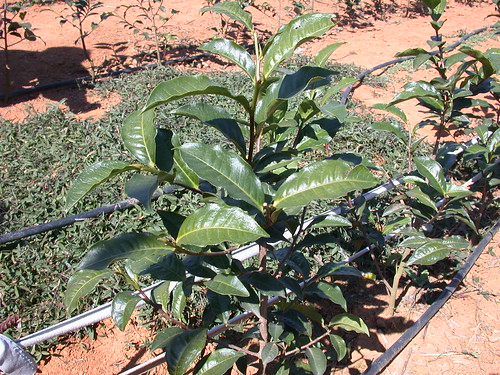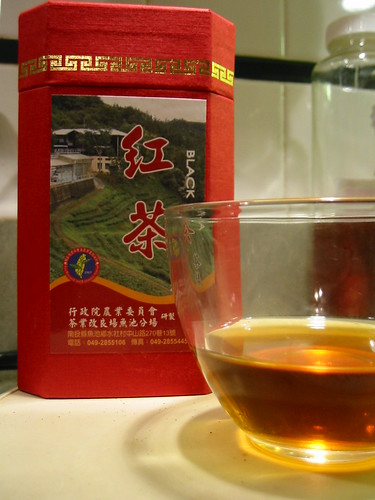
One of the things that makes this tea unique is the fact that it is a cross between an Assam strain and a Taiwan wild strain. The Taiwan wild variety of tea is most similar to the China plant but classified as a separate variety from the two main varieties, Assam and China plants, because it is really a different plant. Number 18 is a strong bush with fairly thick leathery leaves and a purplish shine. It is of much lower yield than the other cultivars created in Taiwan for black tea and has large buds but no pekoe growths. The survival rate is 87.6%, it has strong heat resistance and has a fairly strong resistance to disease, making this cultivar ideal to grow.
Of course, none of this would matter if the taste was not there. This tea is known for its mint and cinnamon qualities and these flavors were certainly present when we cupped it. Not only are those flavors present but we also got rose, molasses, honey and lemon verbena as well. This time when we cupped this tea, we initially did not share tasting notes. Ben C. brought this back from Taiwan and made all of us taste the tea separately and without telling us what it tasted like. Jaime initially got cinnamon and mint, when he and Ben and Hong cupped it. Hong added rose to the notes and then they decided to test the palates of Ben K, Judson and I. Ben, after a long day of espresso shot tasting and barista-ing, still came through with the same tasting notes. That is how powerful and defined this tea is.

Originally when we cupped this tea, from a different batch/producer/farm that was sent from Taiwan, we were not that impressed. It is fairly generic with much more subtle notes and some off flavors. When Ben C. asked the Taiwan Research and Extension Station about this, they said that this was because of the inferior processing of the batch we had received. This just goes to show how important processing is in bringing out the flavor of the cultivar and the end result of the tea.
This is another in the line of many great steps towards the development of quality tea in Taiwan. The Taiwan Research and Extension station plans to further the development of both black tea and wild tea cultivars in the future. It takes them about 21 years to develop a cultivar to the point where it can be used in commercial production and from what I can see, this is time well spent. In the past, the black tea that Taiwan has produced was low quality and exported, and since 1999 one of the goals has been to promote it locally. Promotion for high quality exports of Taiwan no. 18 or Hong Yu (Red Jade) are also on the way.
